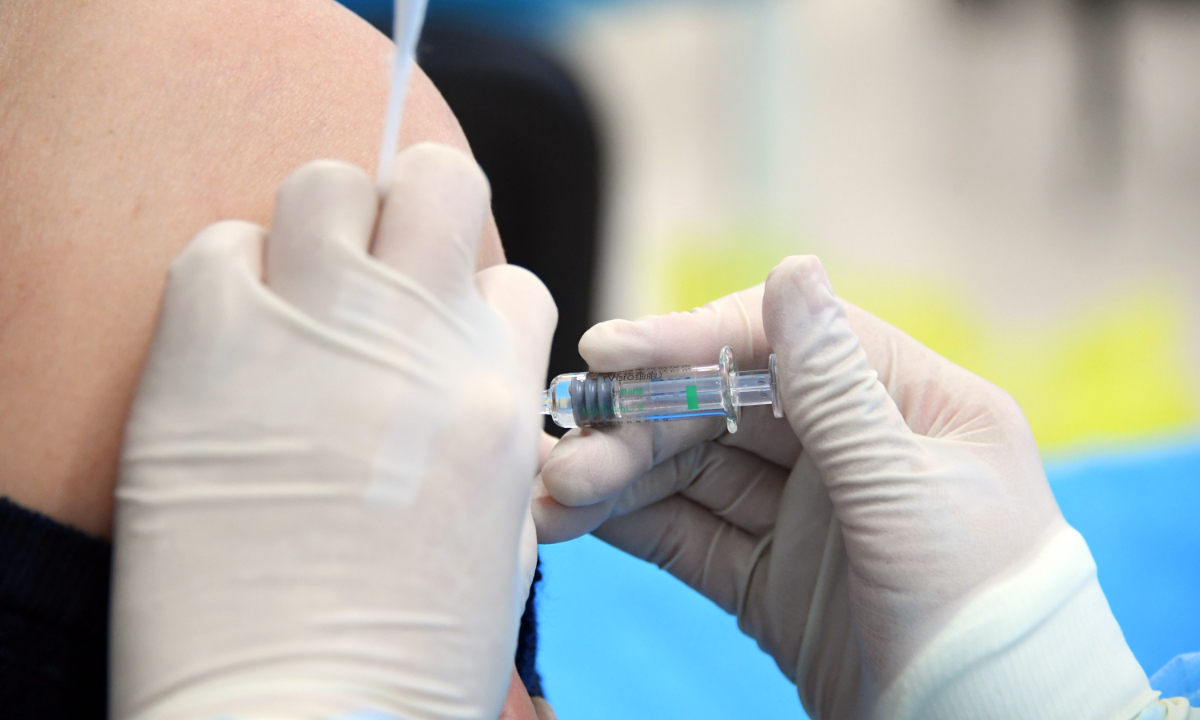Infection
‘Small spike’ in COVID-19 infections expected in winter; vulnerable groups advised to get vaccinated: Zhong Nanshan
A medical worker inoculates a recipient with a COVID-19 vaccine at a temporary inoculation site in Haidian District in Beijing, capital of China, Jan. 11, 2021.(Photo: Xinhua)
China’s top respiratory disease expert Zhong Nanshan warned of a small spike in COVID-19 infections in the winter and reminded the elderly and vulnerable populations get vaccinated as soon as possible.
During the 3rd Guangdong-Hong Kong-Macao Greater Bay Area (GBA) Health Cooperation Conference held in Guangzhou, South China’s Guangdong Province on Friday, Zhong detailed the future transmissibility of COVID-19 and its ability to escape from antibodies.
According to Zhong, a small spike in infections is predicted to occur between this month and January. Newly emerging variants are likely to be highly transmissible, but with no significant changes. Their capability to escape from vaccines will increase.
Zhong stated that although the pathogenicity is not very large, the elderly and people with weakened immunity should receive the second-generation vaccines as soon as possible.
Zhong noted that there are currently six kinds of second-generation vaccines available in China.
According to the statistics from the Chinese Center for Disease Control and Prevention (Chinese CDC), a total of 209 new severe COVID-19 cases and 24 deaths caused by COVID-19 reported across the country between October 1 and 31. Prevalent strains were all XBB variants, with the top three strains including the XBB.1.9, XBB.1.22 and XBB.1.16 variants and their subvariants.
With the autumn and winter seasons approaching, apart from the risk of COVID-19 infection, there has been a high incidence of mycoplasma pneumoniae pneumonia (MPP) and influenza over recent weeks. The Chinese CDC issued a reminder to the public to be cautious about mixed infection of multiple respiratory pathogens from this winter until next spring.
The health commission of Haidian district in Beijing explained on its official WeChat account that infections of MPP, seasonal influenza and COVID-19 are prone to overlapping each other, and there is also a risk of co-infections between respiratory syncytial virus, adenovirus and other pathogens. Among them, cases of co-infections involving two viruses, as well as co-infections of viruses and bacteria, mycoplasma and chlamydia, are common.
Experts stated that from the perspective of preventing influenza, anyone aged six months or older without contraindications should receive the flu vaccine every year. It is recommended that family members with elderly individuals, children, pregnant women, and those with weakened immune systems, including individuals with chronic underlying diseases should all arranged to be vaccinated.
Global Times

